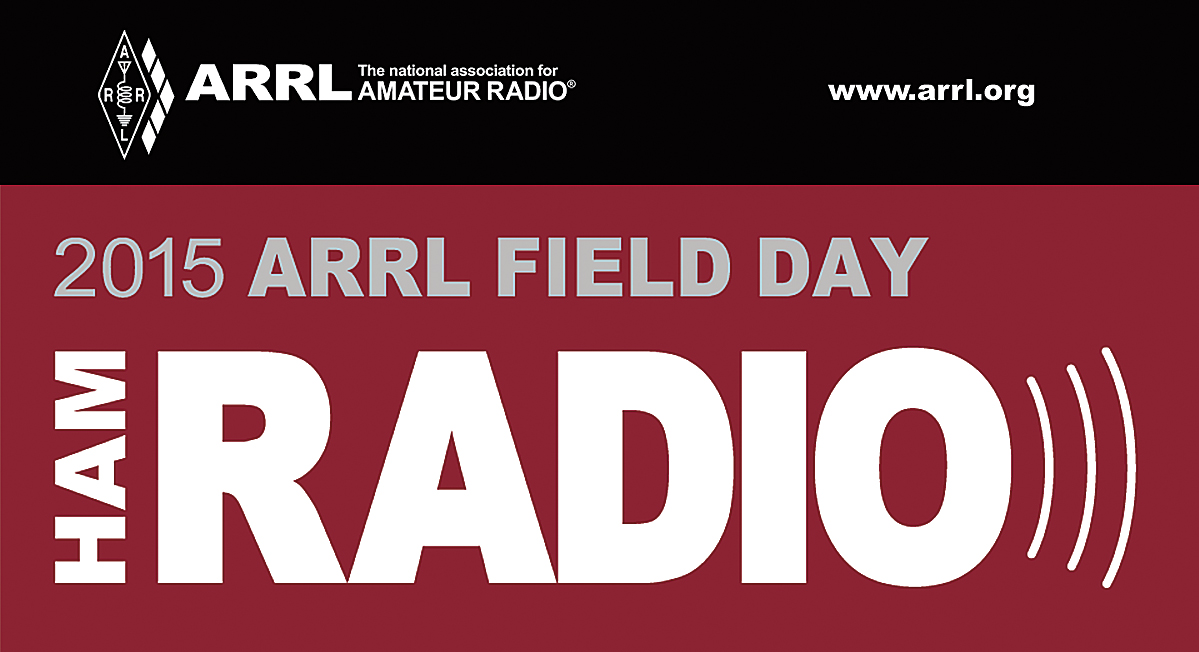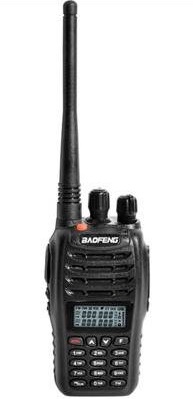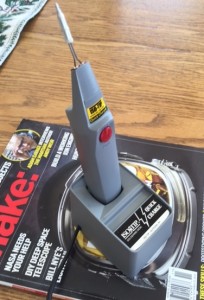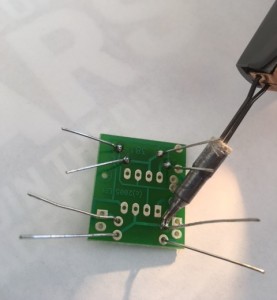Posts Tagged ‘Tech’
 Complete Version: On How NCIS Maligned the Amateur Radio Service
Complete Version: On How NCIS Maligned the Amateur Radio Service
Some of you wanted to see the complete version, uncut, of this video in which I discuss the differences between CB and the Amateur Radio Service. This is in response to the recent episode in which the NCIS writers missed a great opportunity to discover the vibrant reality of the current amateur radio service in the United States of America.
The previous version of the video was prematurely cut short by just over three minutes. This version includes that ending. I also remove some of the low-end rumblings from the vehicle. This version should sound a little bit less annoying. Hopefully, the quality of the video is sharper, as well. This version was edited by Adobe Premiere CC 2017.
I appreciate the many comments, views, and shares. Please subscribe, too!
73 from Omaha!
 ISO-TIP 7700 Soldering Iron Review
ISO-TIP 7700 Soldering Iron Review
I recently had the opportunity to try out a new ISO-TIP 7700 soldering iron. This is a rechargeable soldering iron without a lot of extra features but it is plenty capable for small soldering tasks. Here’s a few specs from the ISO-TIP web site:
– Fully recharges in 3.5 to 4.0 hours
– Partially charged battery to full capacity in one to two hours
– Up to 125 soldering joints per charge during continuous use
– Withstands high-rate charging without damage
Here’s a short video of the circuit blinking away, proving that I can solder together a simple circuit: Video of circuit blinking Yes, the circuit did work the first time.
The post ISO-TIP 7700 Soldering Iron Review appeared first on The KØNR Radio Site.
 Religion and Ham Radio
Religion and Ham Radio
 We need to get the religion out of ham radio. No, I am not talking about the HF nets that support missionaries or similar activities. (Those people might actually be doing something good for the world.) I am talking about the religious debates concerning new technology…this technology is better than that technology.
We need to get the religion out of ham radio. No, I am not talking about the HF nets that support missionaries or similar activities. (Those people might actually be doing something good for the world.) I am talking about the religious debates concerning new technology…this technology is better than that technology.
Amateur radio is a technical hobby, one based on technology, hobbyist pursuits and mutual interest. One might think that this means issues are looked at objectively and discussions are based on logic, scientific principles and facts. Of course, this is completely wrong. What often shows up in ham radio are religious debates about technology or operating modes.
Here’s a definition of Religion:
a specific fundamental set of beliefs and practices generally agreed upon by a number of persons or sects: the Christian religion; the Buddhist religion.
You can tell when you are stuck in a religious debate…the facts quickly fade and statements like “this is the right way to do it” become louder. Underneath this is a fundamental belief trying to come out that the person may not even be aware they have.
A long running example of a religious debate is Linux versus Windows. On the surface, people argue about which one has more defects, which one is more secure and which one ultimately serves their needs better. Underneath the surface is the religious belief: software should be free, Microsoft is evil, etc. Then there are those Mac enthusiasts (you know who you are)….these folks tend to act like a cult as they attempt to convert other people to their group. (Where is the line between enthusiast and cult member?)
The latest one on the ham radio front is the debate over digital technology in the VHF and higher bands: D-STAR versus DMR (and now Fusion). The debate starts out rational with a discussion of the merits of each but soon the deeply-held beliefs come out: D-STAR is bad because ICOM is pushing it, DMR is good because it is the commercial standard, D-STAR is good because it is an amateur radio standard, D-STAR uses a proprietary vocoder chip so it is bad, etc. Then don’t forget the guys that say “all digital is bad, analog FM is good.”
Again, you can tell when the religion kicks in because the facts start to fade and the beliefs rise to the surface. Usually, these arguments can’t be resolved because you can’t really debate beliefs. What you get instead are flame wars on the various email groups.
What other religious debates are out there? Android versus iOS, Open Source Software versus Commercial Software, My favorite rig versus Your favorite rig, … what else?
-73, Bob K0NR
This post is recycled and updated from a 2007 post. Some things never change.
The post Religion and Ham Radio appeared first on The KØNR Radio Site.
 A Few New Ham Radio Podcasts
A Few New Ham Radio Podcasts
 Listening to podcasts has been part of my daily habit for almost a decade. I lean heavily towards audio podcasts (as opposed to video), so I can listen to them while driving. My smartphone is always loaded with hours of content on a variety of topics which is especially useful for international flights.
Listening to podcasts has been part of my daily habit for almost a decade. I lean heavily towards audio podcasts (as opposed to video), so I can listen to them while driving. My smartphone is always loaded with hours of content on a variety of topics which is especially useful for international flights.
Podcasts come and go (or podfade) and recently I’ve noticed a few new ham radio podcasts. Well, they might not be all that new…perhaps I just woke up and noticed them. Anyway, I am passing them along in case you have not come across them.
The QSO Today Podcast by Eric 4Z1UG:
QSO Today is a weekly conversation between me, Eric Guth, 4Z1UG, and my amateur radio operator guest. Each guest tells his or her’s ham radio story to the present time. I select guests based on their contributions to the hobby through their publishing of articles and books on ham radio, their involvement in the creation of new technologies that enhance the hobby, and the role that they played to bring the amateur radio to others.
The Fo Time – The Other Ham Radio Podcast by Cale K4CDN:
It’s a new Podcast for the Up and Coming Amateur Radio Operator aka Ham Radio Operator. Whether you’re looking for the latest news, a different take on an idea, or just some good humor, Fo Time is the Podcast for you.
If you aren’t sure about the name, this might help.
The 100 Watts and a Wire by Christian KØSTH:
Created by Christian Cudnik, KØSTH in 2015, 100 Watts and a Wire is a program celebrating amateur radio through the eyes of a new ham. The show features topical conversation and interviews, news and an entertaining look at the adventures of a ham trying to figure it all out.
I’ve found all three of these podcasts to be well done and interesting. They all typically run about an hour long. Frankly, that’s a bit much for me, mostly because it does not fit my commute time. Not bad for an airplane ride, but too long for driving to work. More importantly, my smartphone is overflowing with interesting audio content, so I have to be selective.
Other Podcasts
I’ll mention a few other podcasts that deserve attention: The Ham Nation podcast has set a new standard for ham radio video podcasts. Hats off to Bob Heil and crew for their efforts. The Amateur Radio Newsline got its start by delivering audio programs via telephone for hams to play on their local repeater. Many repeaters still play their program but I get their feed via my smartphone. They continue to do an excellent job of stuffing interesting content into a 20-minute format. While not a ham radio podcast, This Week in Tech from TWiT remains a quality source of tech news and opinion (lots of opinion).
Give these podcasts a listen and let me know what you think.
73, Bob K0NR
The post A Few New Ham Radio Podcasts appeared first on The KØNR Radio Site.
 ARRL Field Day: Season To Taste
ARRL Field Day: Season To Taste
 I’ve written before about the flexibility of Field Day and the need to season to taste to make it your own. I have always thought that one of the great things about Field Day is that it can be tuned to whatever interests you or your club. It can be a serious radio contest (well, almost); it can be an emcomm drill. It can be a radio campout; it can be a foodfest, it can be a beer-drinking party. Insert your idea here.
I’ve written before about the flexibility of Field Day and the need to season to taste to make it your own. I have always thought that one of the great things about Field Day is that it can be tuned to whatever interests you or your club. It can be a serious radio contest (well, almost); it can be an emcomm drill. It can be a radio campout; it can be a foodfest, it can be a beer-drinking party. Insert your idea here.
This year, our local club, the Tri-Lakes Monument Radio Association is going to try a new approach that we call Tech Field Day. We previously have held a one-day educational event that we call Tech Day, that featured a series of presentations and hands-on demonstrations. The main theme of Tech Day was to help the Technician level hams gain more knowledge and help them move on up to General class operating.
We are taking the basic idea of Tech Day and combining with a shortened one-day version of Field Day. So on Saturday June 27th, we’ll offer a series of educational presentations along with some classic Field Day radio operating. The operating emphasis will be on giving newer hams a chance to get on the air, probably on both HF and VHF. (Our plans are still coming together.) We will also promote the theme of emergency communications, operating off a emergency power source, etc.
There are a number of things that we are intentionally leaving out. We won’t operate the entire 24 hour period…in fact, we’ll probably just be on the air Saturday afternoon. We won’t worry about making a lot of contacts or running up the score. Our stations will be relatively simple (no towers, no amplifiers).
So that’s our idea of a fun Field Day. What are you planning to do?
73, Bob K0NR
The post ARRL Field Day: Season To Taste appeared first on The KØNR Radio Site.
 Bloody Proprietary Connectors
Bloody Proprietary Connectors
I came across this video rant by David L. Jones on the EEVblog concerning proprietary cables on consumer devices. I agree with him completely. Warning: some language not suitable for kids.
Unfortunately, if you look at ham radio gear, we are in even worse shape than the consumer market. Heck, even the freaking microphone connectors are unique to each manufacturer.
 Solving the Baofeng Cable Problem
Solving the Baofeng Cable Problem
 The various models of Baofeng handheld transceivers keep popping up everywhere. At prices less than $50, radio amateurs (including veterans and newbies) are scarfing up these radios. See my postings or check out PD0AC’s blog for more information.
The various models of Baofeng handheld transceivers keep popping up everywhere. At prices less than $50, radio amateurs (including veterans and newbies) are scarfing up these radios. See my postings or check out PD0AC’s blog for more information.
Also very frequently, the new owner of such a radio finds that they cannot figure out how to program it. Of course, the solution is “use the programming software” which is often helpful (and often not). The really gnarly problem that usually surfaces is getting the programming cable to work.
It appears that many of the cheap Baofeng USB programming cables use a clone of the Prolific PL-2303 chip that is not supported by the latest Windows driver. This Miklor web page does a good job of explaining the driver problem and giving some helpful advice. (Actually the Miklor site has tons of information on these radios, so check it out.) I’ll also note that the same cable can be used to program a Wouxun radio, so the same remedies apply. Using the info on the Miklor site allowed me to get my Baofeng/Wouxun cable working with my old Windows XP computer. When I bought a new notebook PC, it came with Windows 8 installed, which I later “upgraded” to Win 8.1. (I will spare you the sad story of dealing with Win 8 and 8.1) Anyway, I have not gotten the Baofeng cables to work on Win 8 or 8.1, even following the Miklor advice.
I started using the Chirp programming software, an open source application that supports a wide variety of radios. (I have found the supplied Baofeng and Wouxun software to be, uh, well, crapware. It can be made to work but it is a pain.) While the Chirp software is not bug free and is in perpetual beta, it basically works well and does a great job of supporting a wide range of radios. I noticed that the Chirp Cableguide recommends the use of programming cables with an FTDI USB chip. I found this one on Amazon for $19, a little more expensive than the cheapo cables but not bad. I plugged it into my Win8.1 computer and it started working immediately. I did not load any drivers, Windows actually did its job and took care of it for me. In minutes, I was programming a variety of Baofeng and Wouxun radios. Success!!!
My strong recommendation at this point is to use the Chirp software and get a FTDI-based programming cable. You will be a much happier Baofeng or Wouxun owner.
73, Bob K0NR













